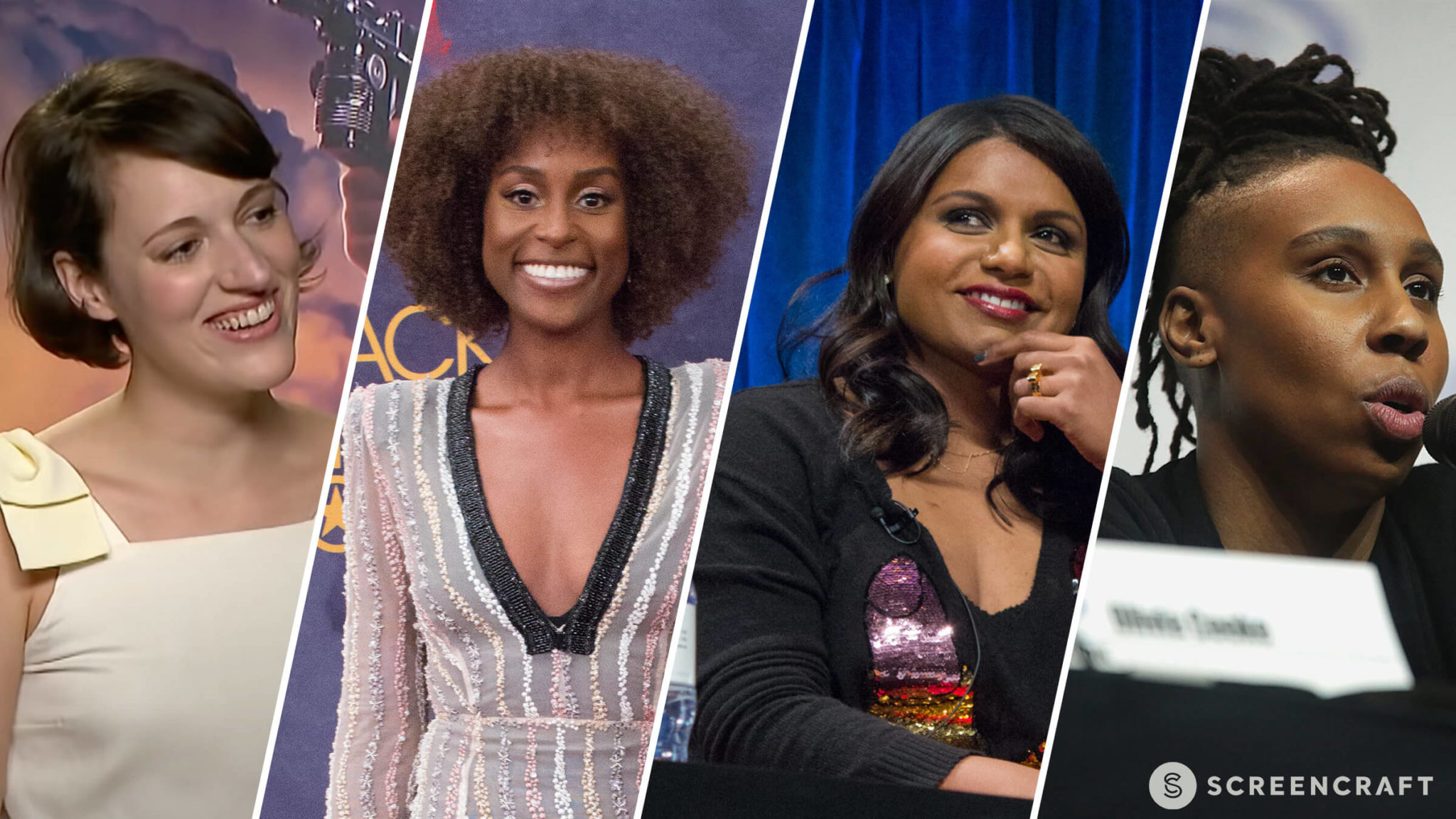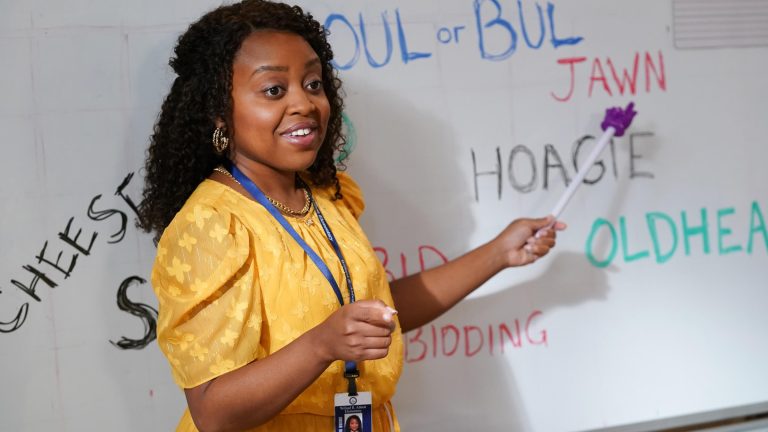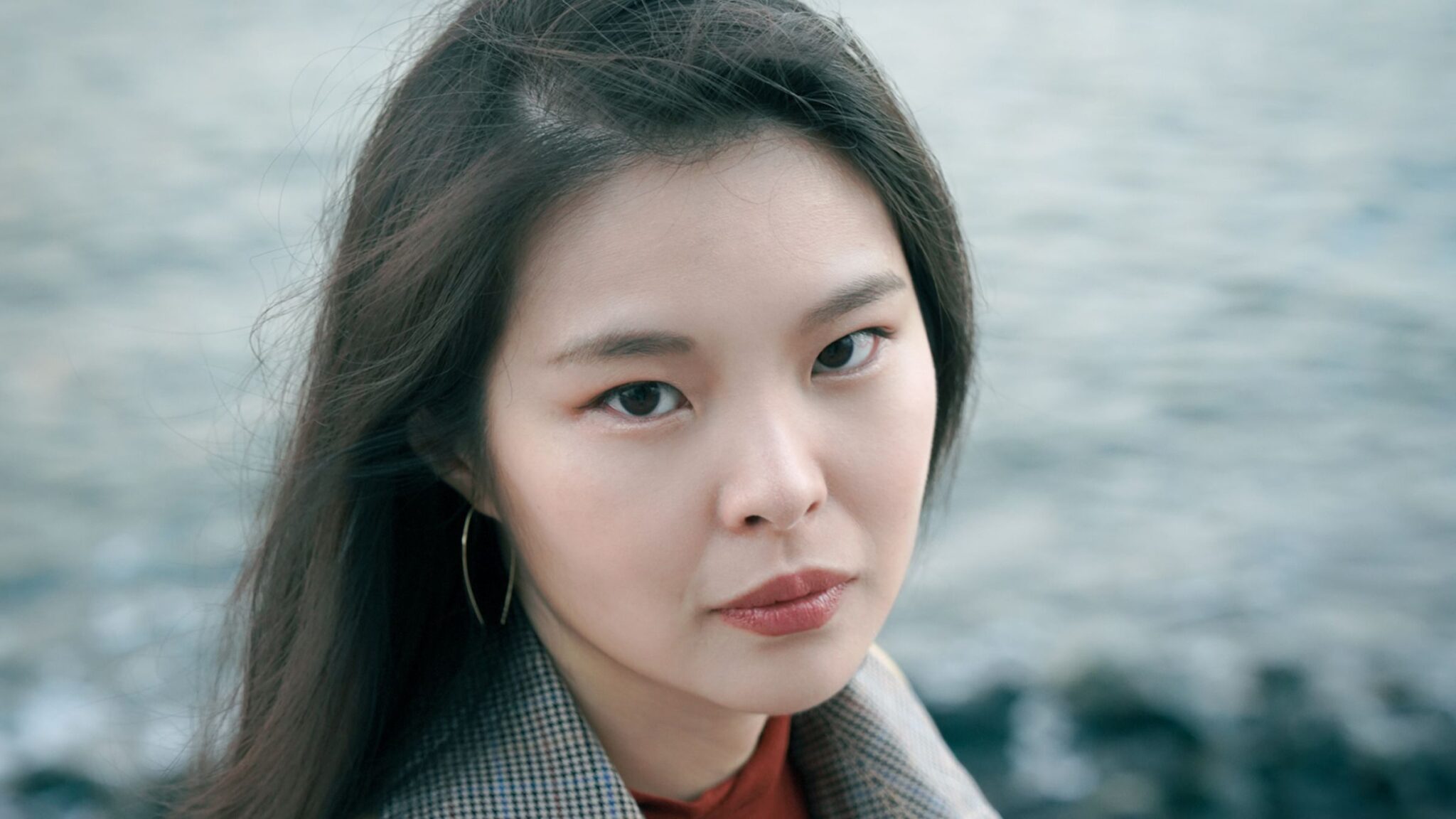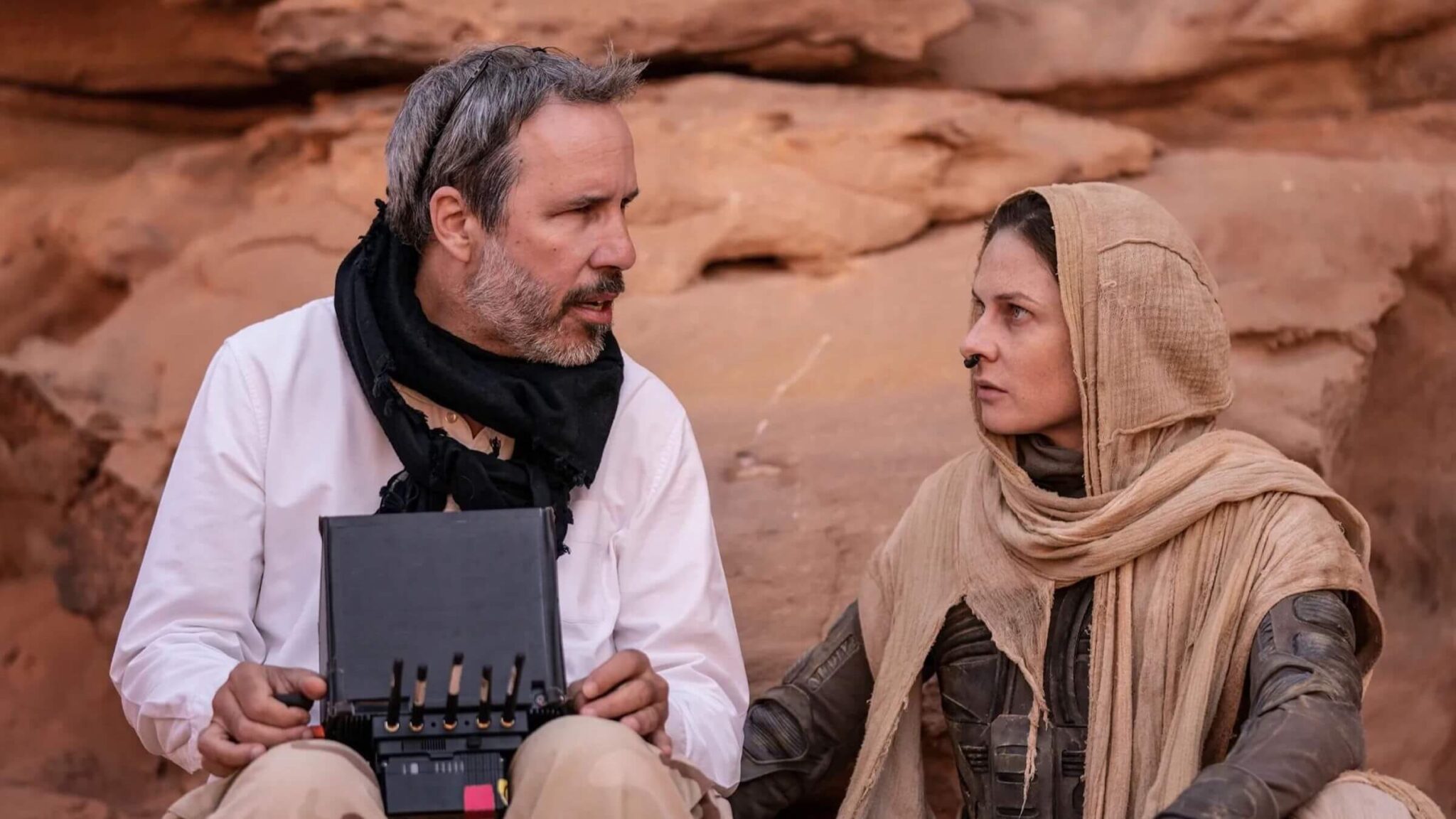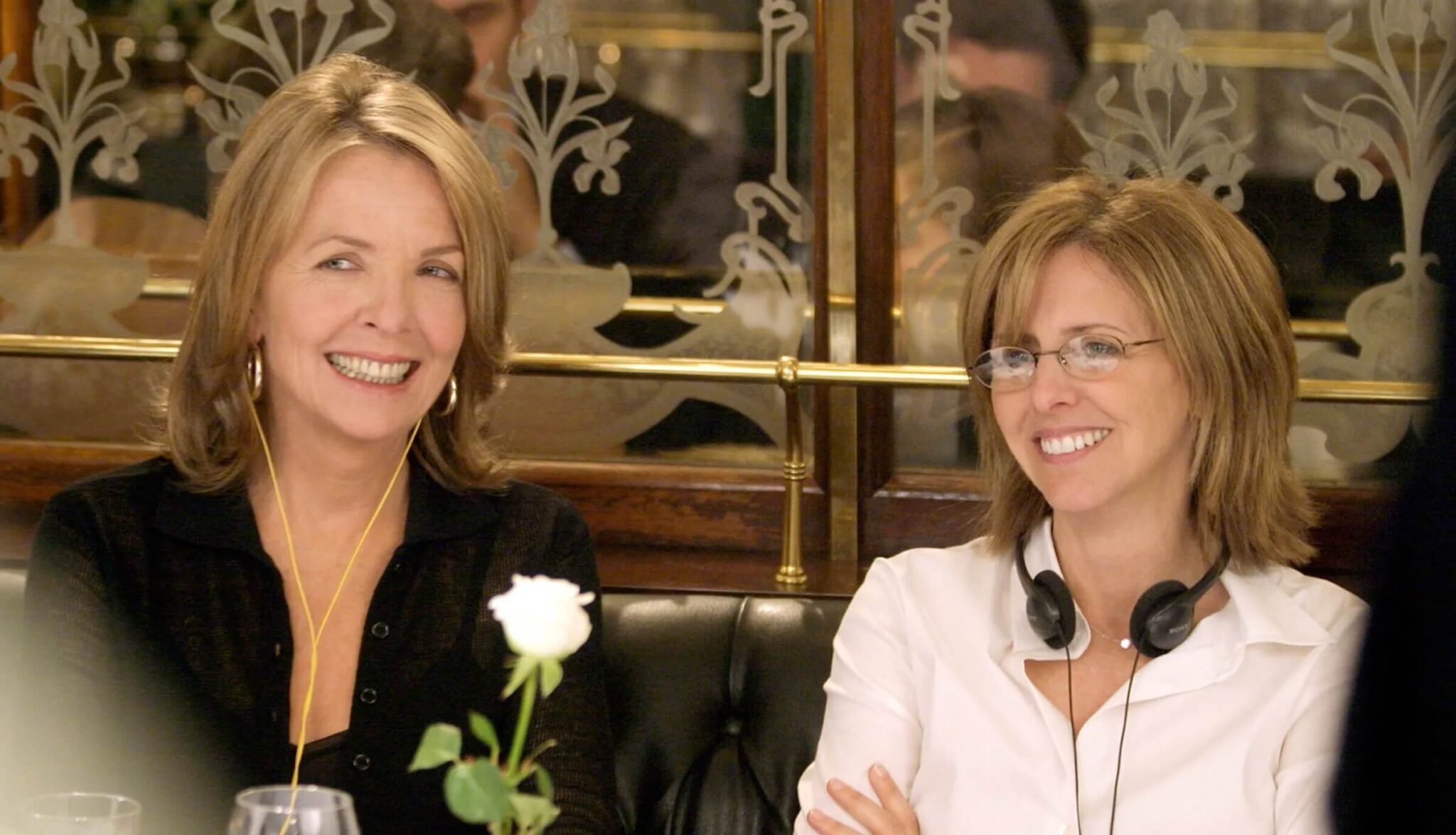Screenwriting Wisdom from Some of Hollywood‘s Best Female Screenwriters
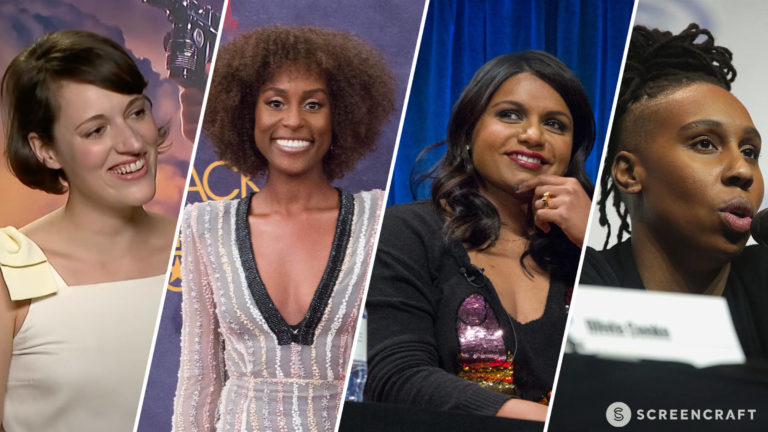
We all need a little help when creative times get tough. So, if you're looking for some screenwriting guidance and a little motivation for your next project, these inspirational quotes from Hollywood's best female screenwriters will definitely do the trick.
Scroll through these pearls of wisdom from these industry legends, like Phoebe Waller-Bridge, Michaela Coel, Mindy Kaling, and many, many more.
Phoebe Waller-Bridge
Showrunner: Fleabag, Killing Eve
“I always think there should be at least three things going on in one scene at the same time. I think every actor should know that there are three things this person is dealing with, and usually it’s like they’re having to eat lunch, or they’re having to deal with a really hot room. It’s something like that… When there are three things going on at the same time, at minimum, I think you instantly have reality.”
What turns a good scene into a great scene? Well, a lot of things, but Phoebe Waller-Bridge shares some great insight into how she manages to add depth and realism to hers. Give your characters something to do — something to deal with — that isn't the central conflict.
Read More: 5 Trademarks of a Phoebe Waller-Bridge Script
Michaela Coel
Showrunner: I May Destroy You, Chewing Gum
"I don't believe in comedy as a TV genre - I think there's drama that is funny. Because beyond the laughs, there has to be cost, and there has to be heart."
If you've ever watched Michaela Coel's "sitdram" I May Destroy You then you know exactly what she's getting at with this quote. I May Destroy You tackles some of the most serious and sensitive topics in society, namely sexual assault, but Coel finds the humor in the darkest areas of her narratives to create television that is full of, as she puts it, heart.
Shonda Rhimes
Showrunner: Grey's Anatomy, Scandal
"There are stories to be told that are still untold and characters to be portrayed that haven’t been portrayed correctly. So there’s work to be done.”
Those untold stories and characters that have yet to be portrayed are out there. You just have to find them. And when you do, there’s no better thrill than creating something that hasn’t been done before.
Sofia Coppola
Writer/Director: Lost in Translation, The Beguiled
“With writing, I need a lot of time to sit around and do nothing. But now that I have kids, I just don’t have that luxury. I have a babysitter for three hours a day, which is how long I have to write.”
Take it from Sofia Coppola —you need to find the time to write amidst the crazy schedule of life, whether it’s an hour, three, or five every day or week.
Emma Thompson
Screenwriter: Sense and Sensibility
"If you're actually allowing your creative part to control your writing rather than a more commercial instinct or motive, then you'll find that all sorts of interesting things will bubble up to the surface."
Even if you're working on a studio-friendly piece of material, never forget to let that creative side take hold to find some interesting story arcs and characterization to take hold.
Nora Ephron
Screenwriter: When Harry Met Sally..., Sleepless in Seattle
"Writing is what I do. It’s like breathing to me at a certain point.”
Truly wise words from legendary screenwriter Nora Ephron. If you truly want and need to be a screenwriter, you just have to do it. It has to be like breathing. If you don’t breathe, you don’t live. If you don’t write, you can’t survive the day, week, month, or year. That’s what it takes.
Issa Rae
Showrunner: Insecure
"It’s a bit clichéd, but you can’t go wrong by writing what you know. Even if you’re a horrible writer, your own knowledge and experience are unrivaled. Nobody knows what you know like you know what you know. The way you see things is pretty unique."
When you write what you know, it's not about only writing stories that you've experienced. It's also about injecting what you know into stories that you haven't experienced so you can connect with the material more.
Nancy Meyers
Screenwriter: Private Benjamin, Father of the Bridge, Something's Gotta Give
"I think it’s a mistake to write something you think people will like, or a combination idea, or this year’s version of last year’s movie. I don’t think you’ll ever get noticed doing that. I think you’re only going to get noticed by following your own instincts and doing original work and writing the thing that only you can write."
Only established Hollywood screenwriters can keep up with the current trends because they have Hollywood connections and pull to fast-track projects. As an unknown writer, you can't possibly keep up with the trends because by the time you've written it, marketed it, and have had people read it, the trend is likely over.
While those types of scripts can work as great calling cards, it's best to create some excellent original material that Hollywood didn't know they wanted. Be the trendsetter, not the trend follower, as Nancy Meyers' quote suggests.
Melissa Mathison
Screenwriter: E.T. The Extra-Terrestrial, Ponyo, The BFG
"My idea of a good fantasy is something that's absolutely grounded in reality. And there's a little element that doesn't belong there — and that's the fantasy element — that you have to react to and deal with in a completely real way."
An amazing piece of advice for anyone writing fantasy.
Lena Waithe
Screenwriter: Master of None, The Chi
"Your art is stunted when you’re trying to pretend to be something you aren’t."
Don't worry about being the next Quentin Tarantino, Diablo Cody, or Spike Lee. Be the first you.
Callie Khouri
Screenwriter: Thelma and Louise
"I love to start characters in a place where you think you know them. We can make all kinds of assumptions about them and think they have no redeeming qualities, but like everyone, they're complex."
When you're developing characters within your screenplay, don't be afraid to play with assumptions the audience may have when the character is first introduced. Flip those types of characters on their heads and surprise the audience.
Mindy Kaling
Screenwriter: The Office, The Mindy Project
"I always write in exactly the same place, which is sitting in my bed, with two pillows behind me. I've written 50 television scripts and two books on this one place on my bed! I think the lack of the formality of a desk makes me feel really comfortable, and I'm a creature of habit."
Find your process. Find your space. Your best writing happens in your happy place.
Allison Schroeder
Screenwriter: Hidden Figures, Frozen 2
"It’s okay to be a woman and love dresses and heels and lipstick and also love math and science and want to be a screenwriter."
Female screenwriters have taken Hollywood on by storm, shattering preconceived notions of what women are best at writing. They're writers. Plain and simple.
Melissa Rosenberg
Screenwriter: Dexter, The O.C., Twilight
"If there is a scene you could cut out without making any difference to the film, it should go. The same goes for dialogue. If it doesn’t tell anything about the character or move the plot forward, then no matter how witty or deep it is, cut it. Everything should be working hard; every line, every scene. It can feel brutal to cull your favorite bits. But if you don’t, someone else will and it’s easier to fight for the parts you really think should stay in if there is less to get rid of. Learning how to do this comes with time."
Whether you want to call it editing, rewriting, or killing your darlings — it's necessary. Read through your script — every line and every scene — and make sure what you're reading matters.
Greta Gerwig
Writer/Director: Lady Bird, Little Women
“I’ve never had a plan, I’ve always done things from instinct.”
The screenplays that are overly planned and outlined and those that clearly follow a tired formula are those that disappear amidst the dense ocean of scripts in Hollywood. The ones that are written on instinct have a true fire about them. It’s evident right there on the page. And, as Greta Gerwig demonstrates, your best work will come from those moments of authentic instinct.
As screenwriters, it’s important to know, realize, and accept what your strengths and weaknesses are. That way you’ll know what comes natural and what is going to challenge you most — and sometimes challenging yourself brings out the best stories and characters in you.
Diana Ossana
Screenwriter: Brokeback Mountain
"The most important thing to know before sitting down to write is the nature of each of your characters — know them inside and out, through and through, as if they’re real. Know them better than you know yourself."
Amazing concepts are great — it is a concept-driven industry — but audiences respond most to characters because they are the reasons audiences give a damn. So treat your characters with the proper care and attention.
Kristen Wiig
Screenwriter: Bridesmaids
"In the end, the story is the most important thing. It’s story first and funny second."
The best comedies aren't just endless laughs and gags — they center on characters that we care about and stories that enthrall us.
Leslie Dixon
Screenwriter: Mrs. Doubtfire, Limitless, Overboard
"No matter how successful you are, generating your own jobs is going to help keep up the quality of what you do and your enthusiasm and passion — which is going to lead to better work, as opposed to ‘All right, I guess I’ll take the million dollars and do this piece of shit.’ I don’t want to tell you how many people out there are like that."
Don't chase the money. For most, it's not there. For the top one percent that experience the big paychecks, enthusiasm and passion dwindle if you're not working on quality work.
Amanda Silver
Screenwriter: Rise of the Planet of the Apes, Jurassic World, Mulan
"Don’t worry about getting it right all the time. Experiment. It’s okay to fall on your face. My wonderful USC teacher Nina Foch used to say, 'Make failure your friend.' I wish I’d been better at that when I was young."
You must fail before you can prevail. It's necessary. Failure helps you to become a better writer. Embrace it. Learn from it.
Karen McCullah
Screenwriter: 10 Things I Hate About You, Legally Blonde
"Get to page 85, not 25. Move on, and then go back to the first one. You will have found all the ways to solve the problems in your first script by finishing the second."
Don't try to make those first 25 pages perfect before you move forward. Instead, focus on getting to the finish line — The End. And use what you've learned in that process for the next script, and the next, and the next. And then go back and use what you've learned to fix that very first script.
Kirsten "Kiwi" Smith
Screenwriter: 10 Things I Hate About You, Legally Blonde
"Become students of the industry and its citizens. We’re all here to be creative, so always be ready to receive and give help."
Your screenwriting journey isn't just about learning how to write screenplays that will sell. And it's not just about honing your craft so that you can write excellent screenplays.
You also need to study the industry and learn the ropes. Build your network. Read the trades. Know who is who within the industry. And, yes, be ready to receive help. But even more important, be ready to give it when the time comes.
Linda Woolverton
Screenwriter: Beauty and the Beast, The Lion King, Maleficent
"If I get stuck I watch something that really inspires me... something that reminds me why I wanted to be a writer at all."
Writer's Block is BS. There's no time for that as a professional writer. If you get stuck, go watch a movie that inspires you. It will reignite that flame within and you'll be writing before you know it.
Geneva Robertson-Dworet
Screenwriter: Tomb Raider, Captain Marvel
"I grew up on action movies. That's what I write, that's what I love. And there are not that many fantastic ones with women."
Don't be afraid to go against the grain of what the industry has already pegged you for. Write what you love — and write it well.
Diablo Cody
Screenwriter: Juno, Tully, Young Adult
“I grew up in the Midwest; you don’t know any screenwriters. It didn’t seem like a realistic career possibility.”
Anything can happen to anyone from anywhere.
Ken Miyamoto has worked in the film industry for nearly two decades, most notably as a studio liaison for Sony Studios and then as a script reader and story analyst for Sony Pictures.
He has many studio meetings under his belt as a produced screenwriter, meeting with the likes of Sony, Dreamworks, Universal, Disney, Warner Brothers, as well as many production and management companies. He has had a previous development deal with Lionsgate, as well as multiple writing assignments, including the produced miniseries Blackout, starring Anne Heche, Sean Patrick Flanery, Billy Zane, James Brolin, Haylie Duff, Brian Bloom, Eric La Salle, and Bruce Boxleitner. Follow Ken on Twitter @KenMovies
Get Our Screenwriting Newsletter!
Get weekly writing inspiration delivered to your inbox - including industry news, popular articles, and more!



